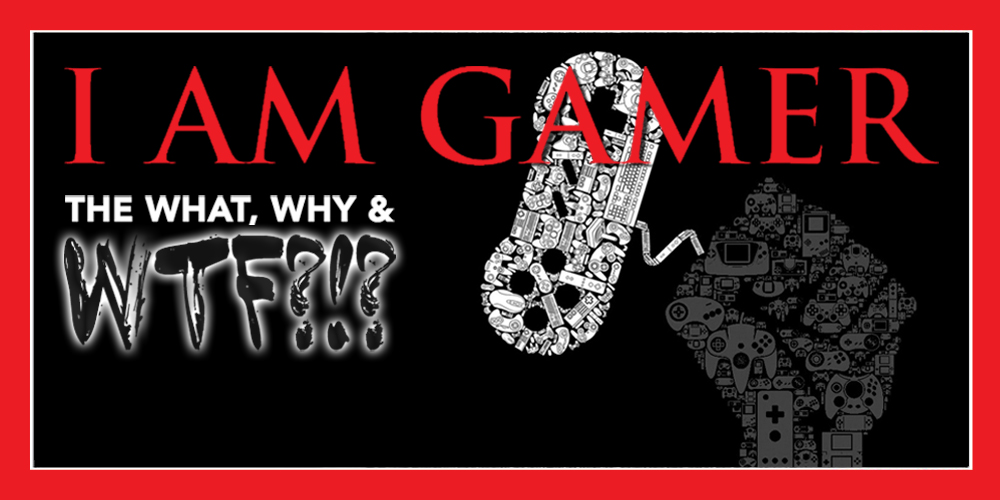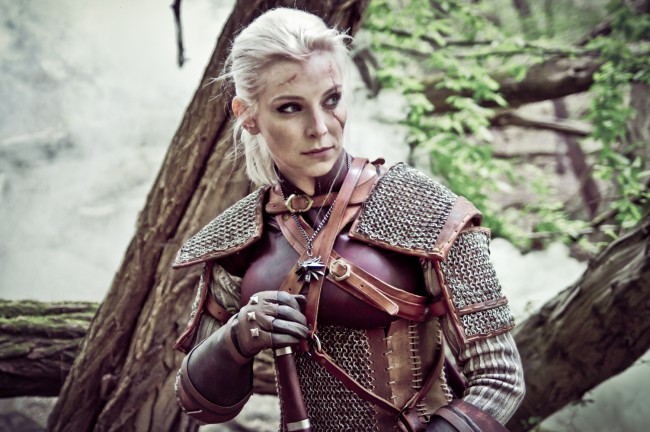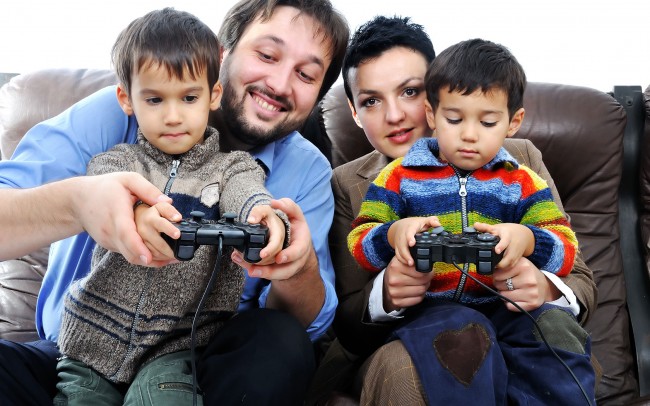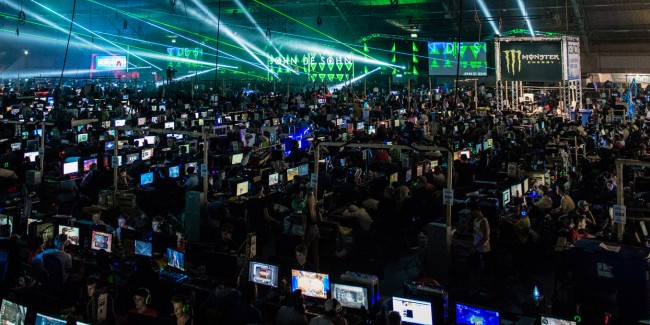
The weirdest thing happened to me the other day. A few friends and I had just gone to see Deadpool for the fifth time (seriously, that movie is ON POINT) and decided to get Maccas afterwards. As is always the case when you don’t want to linger at Maccas for too long, one of the friends’ car springs a leak. Like magic, a group of strangers came by to check if we’re okay, and one of them was wearing a Fallout hoodie. Guess what we talked about for the following half hour? No, no, no, not the complex political freakshow surrounding the treatment of Syrian refugees; we talked about video games, because these guys were gamers, and we knew exactly what that meant. I mean, we didn’t, but we were both pretty insistent that we were gamers.
It’s weird that gaming fosters such a strong identity. People wear shirts with cryptic symbology (like Pikachu) and voice strong opinions on any topic you throw their way (like how Pikachu Libre is better than Pikachu). There’s no such thing as a gamer without something to say, and there’s nothing as satisfying as someone who understands your love for another game. Where does this sense of identity come from, though? It’s not like you see ‘noveler’s roaming the streets in their Infinite Jest tees and weighing up the new Neil Gaiman release like it was another Assassin’s Creed game. No, gamers are a particular breed, and I think it says a lot about the culture that we prize being identified that way so much.

… Wait, I mean… Let’s try this again…
According to Wikipedia, a gamer is someone that plays games. Now, don’t get me wrong, that’s a dandy way to define it and all, but it’s not. I’ve never thought of a gamer as someone that just plays games; it’s always been someone for whom games play a significant role. Just because my friend plays games like Bloodborne didn’t make him a gamer because it didn’t constitute a significant part of his life. Would you call a Go master a gamer? To me, gamers aren’t casually interested in the medium so much as they are vehemently part of the ever evolving landscape. They are the people who bring up MDK at parties, they are the ones who will recommend what’s hot right now, and they are the most critical of the community because they know it can do better. They are gamer, and it’s hard to pin them down.
This will sound like a cop-out, but I don’t have a good definition of what a gamer is. Part of the problem stems from the fact that everyone has their own definition of a gamer, but they also tend to be self-identified. I suppose this a good way to approach the problem since I’m not hugely interested in people that are labelled gamers so much as the ones who identify as gamers. This also means that pinning down who a gamer is requires climbing the 7000 thousand steps up to the Greybeards and seeing if they know anything more useful than Fus-Ro-Dah (spoiler alert: they don’t). It’s such a nebulous concept, and it’s even weirder to me because it’s self-adopted.

See this dude? Probably a gamer. Can’t be certain, but might be.
It’s not like becoming a gamer is something that you earn (despite what some people might have you think); you decide that you fall into this group. The thing is, if there’s no standard idea of what a gamer is beyond playing games, how is it that a community this massive can converge and appropriate the term as though it were universally understood? At some point, there must be universalities in what makes a gamer other than merely playing games. If we look at it from an anthropological perspective, we could say that it involves wearing sick shirts and buying everything during a Steam sale, but even this fails to encapsulate who a gamer is. At the end of the day, a gamer is a gamer, and that’s as far as it seems to go, but why adopt the term in the first place?
We, as humans, like to categorise stuff. Animals, trees, genres, people, whatever you can think of, we’ve probably figured out a way to differentiate it from something else! It’s unsurprising, then, that we also like to categorise our social world. We like to form groups of people that can be easily referred to and typified, which can help in developing opinions of communities and identify with certain peers. If I see someone wearing a ‘Purge The Heretic’ shirt, chances are I’m going to have a better conversation with them than the guy wearing a cross on a chain because I can identify with the shining light of The Emperor. This feeds into one of the most important parts of the human psyche: Self-image.

When you look in the mirror, do you see a person… or a fetch quest?
Cultivating one’s self-image is an important part of growing up (spoken like a real high school teacher), and identifying as a gamer plays a huge part in how you look at yourself. When I use the term self-image, I’m not just talking about what you wear or what cromulent words you use; I’m talking about who you are and how you choose to behave. Perhaps you see yourself as the joker, always ready to crack open a joke, and you cultivate a light-hearted approach to things to make sure everyone knows you’re willing to roast them. Identifying as a gamer could play into your desire to wear gamey shirts and get people aboard the No Man’s Sky hype train. Of course, this image is heavily reliant on understanding who gamers are and what they do, but the term is nebulous, so how does one form adopt an identity with so little basis!?
Believe it or not, it doesn’t matter. It’s not a matter of adopting an identity for what it is; it’s about assuming the identity for what we perceive it to be. Someone might gravitate towards calling themselves a skinhead because they view the group to be easy-going and all about the rights of the working class. Before you ask, no, I’m not saying gamers are skinheads (unless you are one, in which case, this is for you), but that same dissonance is present in any community you come across. Whether it’s being a true Christian, part of the upper-middle class or a gamer, what those mean is irrelevant. It’s all about what you perceive the identity to be, and this is… Well, it has it’s downsides.

Hey, look, it’s the LoL community.
I think we can all agree that casuals are the worst. It’s not even the fact that they’re so useless, it’s that they don’t know they’re useless. Even when you’re looking them in the eyes and saying they’re useless, their uselessness gets in the way and blinds them in an incompetent haze of ignorance to ‘have a fun time’. What even is that?! Us hardcore gamers are sexier, more dedicated, and we play ArmA on Wednesdays because that’s what superior human beings do with themselves. Now, if you legitimately think like this, congratulations, you’re a tool, but most of us can see that this is pretty insane. The thing is, group comparisons are what happen when you identify as part of a group, and gaming is no different.
Comparing yourself to others is a normal process that we go through to help form an identity, but it can foster some dickish thoughts. For instance, the idea that because you’re part of the more elite, prestigious group of gamers, you are somehow superior to those gamers who can’t afford a tower or enjoy clubbing. Through comparing groups of people and their activities and perceiving what it is that constitutes being a part of this group, you can fall into the trap of in-group favouritism. In essence, you think your breed of gamers is the best and everyone else are scrubs. Well, before we all go slow-clapping captain shrivelled-dick over there, it might be important to note that it’s not totally their doing.

Pictured: Backseat gaming. Also pictured: Bad parenting.
One of the weird things about human identity is how easily it’s influenced by itself. Say you start thinking of yourself as a bit of a trekkie. You’ve always dug space, you liked Next Gen (who doesn’t, really?), and you think you’re cool with labelling yourself as a bit of a Star Trek nerd. Turns out that adopting this identifier will influence how you behave and how you think, and it can happen without you even realising. That might seem obvious, but the important thing to remember is that it doesn’t matter what people in a group are doing, it’s what the person perceives they are doing. The behaviours that will creep in will be based on what they’ve seen and how they see that group, and this can include borderline-neckbeard behaviour. This doesn’t explain why SO FREAKIN’ MANY people identify as a gamer, but fret not, I gots me a theory, ma.
Gaming is an inherently marginalising hobby, as most hobbies are. Single-player games are designed to immerse you, to cut out the world around you in favour of this cool mini-reality, like books or model railways. Games are a hell of a lot more immersion-heavy than books, and while I’m not saying that books can’t whisk you away into a dreamland of hallucinatory bloodshed, games will demand more of your senses. These experiences are special and meaningful, different to other forms of expression, and we, as people, want to share our love of the game with others who appreciate the experience. Our perception of who that is, whether it’s been moulded by a global media conspiracy or it’s just who the medium attracts, are people who identify as gamers. When we find them, like anyone else who likes the stuff we like, it’s AMAZING. Who they are doesn’t matter, but who these people see themselves as – part of a community that accepts enjoyable marginalisation of this form – is what counts.

Hordes of people agree: Games are okay!
Gamers are a special breed, not just because we prize our identity like rabid children, but also because what a gamer ‘is’ is so nebulous. Sure, I could say a gamer is someone that plays games, but that just doesn’t feel like it’s doing the term justice. Of course, that’s just my opinion, and you’re free to live by whatever definition of gamer you stand by. Hell, if you want, you don’t even need to play games, you can just have an opinion from Let’s Plays, but games are important to you, so be a gamer. Just don’t let the subconscious behaviours symptomatic of the darker side of gaming creep in there, because they’ll sure as hell try. And don’t be a casual. Ever.











